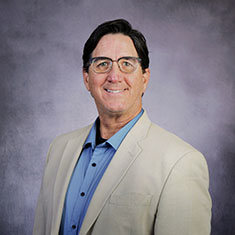Prospective Counseling Students
Interested in a PNW counseling program? Application and program information is below!
The Call of Counseling
You are entering a unique field of study; it is unlike many other graduate degrees. A Master’s in Education: Concentration in Counseling is considered a terminal professional degree that requires specific training to assure you are competent to practice. You will literally have people’s well-being in your hands.
Consequently, our program involves a rigorous sequence of courses. To be successful, you are required to attend classes regularly and arrive on time.
As professional counselors, your professors are ethically responsible to serve as gatekeepers for our field. We are dedicated to training competent, ethical, and knowledgeable counselors. We expect the same commitment from our students.
FAQs
GRE scores must be sent in addition to the necessary admission requirements.
Scholarships are available through the Purdue University Northwest, American Counseling Association, and Chi Sigma Iota.
Lisa Hollingsworth is the program director and is always happy to discuss the prospect of graduate school. Schedule your appointment with her by email: lholling@pnw.edu
Yes. Clinical Mental Health Counseling and School Counseling are CACREP accredited. The Addictions Certification program is ICAADA accredited.
Your advisor will meet with you before you apply for a program to provide you with information about the application process, course requirements, and licensure requirements. If you would like, your advisor will help connect you with current students so that you may obtain the student perspective about our programs. S/he will also work with you to assure you are taking courses in the appropriate progression and to assist you in registering for courses as needed. Your advisor is your “go to”person for any questions that you have while in the program. In addition, s/he assists you with the process of preparing for graduation.
If you are interested in transferring to one of our programs, Lisa Hollingsworth will review your transcript and course syllabi (if available) to determine which courses would transfer and meet our accreditation requirements. Courses taken for a completed graduate degree at another university cannot be transferred. You would also need to complete the application process for admission into a program.
Prospective students who are interested in reviewing syllabi for our courses should contact Lisa Hollingsworth at lholling@pnw.edu to make those requests.
Chi Sigma Iota, an international honor society of professional counseling and for professional counselors, is an extracurricular activity that most students partake in to grow professionally while giving back to the community through philanthropic events. Alumni also have a chance to share their experiences out in the field with current students.
Yes. Aside from students utilizing the Community Counseling Center for counseling individuals in the community, the space doubles as a library and meeting place for current students. The facility is fully equipped with a library, 4 counseling rooms, an office with the capacity to print, a conference room with observation software, and a kitchenette. Only students of CACREP counseling programs are eligible to use the space. Other graduate students from the School of Education and Counseling programs are also welcomed to use the Education Resource Center (ERC) in CLO 316.
You can find more information in regards to student employment on the Student Employment webpage.
Absolutely! The Counseling and Professional Education Diversity Statement reads:
The Counseling and Professional Education Programs prepare students to be able to demonstrate knowledge of and respect for the influence of culture, ethnicity, gender, race, sexual orientation, religion, ability, and socioeconomic class in counseling individuals from diverse populations; to be able to maintain a multicultural and global perspective, emphasizing social justice for all; demonstrate competency in implementing culturally appropriate counseling techniques of assessment, intervention, and intervention evaluation with diverse clients; and to be able to demonstrate the ability to practice in a manner consistent with a fundamental belief that all individuals have the capacity to grow, change and learn.
Possessing a non-discriminatory attitude is not only expected but is to be exceeded. The academic unit seeks and act as gatekeepers for prospective students who will be actively be observant and introspective of their own attitudes and behaviors; and, when confronted with their own prejudices, will work to understand their underlying beliefs and feelings and take steps toward changing them. Enrollment in this program, therefore, is seen as a commitment to the values of acceptance; promoting wellness for all individuals; and continued, life-long self-examination. The unit’s core faculty is committed to supporting personal and professional development, and actively promote and expect flexibility in behaviors or expressions which are assessed to be highly intolerant or rigid. Prospective and current students are expected to self-assess their how they display acceptance of others, as they will be routinely evaluated for their readiness for and progression through the counseling program. The core faculty trust that students who are ready for and excited about becoming skilled, highly competent professional counselors, will eagerly join us in this commitment to respect for diversity.

Community Counseling Center
LET US HELP
Interested in learning more? Call or visit us!
Phone: (219) 989-2923
